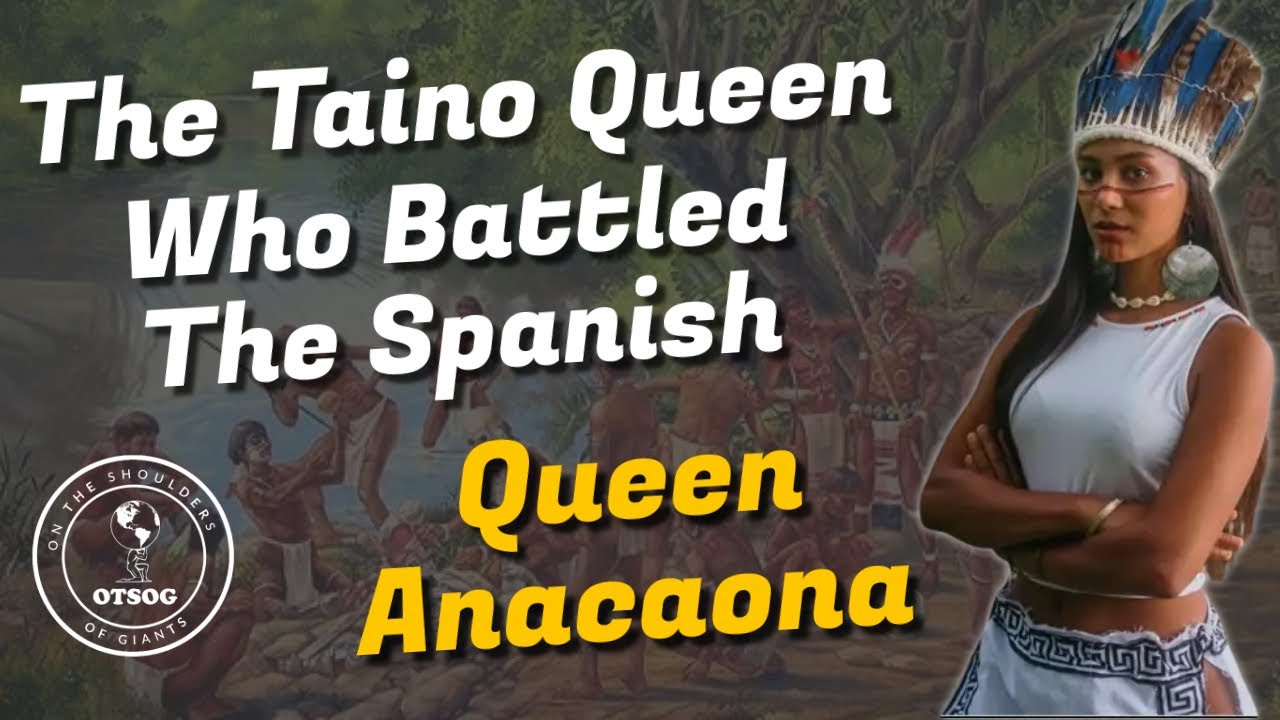Anacaoana, Taino queen (Women's history podcast)
Summary
TLDRThe radio program 'Your Grandma Rocks' explores the life of Anacaoana, a Taino queen from Hispaniola, known for her resistance against Spanish conquest. Born in 1474, Anacaoana was a peace-loving figure, yet portrayed variably across Spanish accounts. The show delves into her story, featuring music from Haiti, Dominican Republic, and Cuba, reflecting her cultural impact. Despite the scarcity of firsthand accounts, Anacaoana's legacy as a symbol of defiance and cultural identity endures, resonating in modern Caribbean art and history.
Takeaways
- 🎓 Philippe Girard and Amber Hale are professors from McNeese State University, hosting a program exploring the life of Anacaoana, a historical figure from the Caribbean.
- 🌟 Anacaoana was a Taino queen, born around 1474, who was the sister of a king in Haiti and the wife of a king in the Dominican Republic.
- 🛡️ She was known for her resistance against the Spanish conquistadors and is considered a national hero in several Caribbean countries.
- 🎵 The program includes music from Haiti, the Dominican Republic, and Cuba, reflecting Anacaoana's cultural heritage and influence.
- 🏰 Anacaoana was born into the Taino civilization, which dominated the northern Caribbean before the Spanish conquest.
- 👑 Her name, meaning 'golden flower' in the Taino language, signifies her high status as a royal figure in her society.
- 📚 The historical accounts of Anacaoana's life vary, often reflecting the biases of the Spanish authors who wrote about her.
- 🌴 The Taino people had no written language, so much of what is known about Anacaoana comes from Spanish conquistadors' accounts, which may be skewed.
- 🗣️ Anacaoana's voice is missing from historical records, and the stories told about her are often filtered through the perspectives of others.
- 🔥 The Spanish conquest brought diseases, forced labor, and violence to the Taino people, significantly impacting their population and culture.
- ⚔️ Anacaoana's resistance to Spanish colonization and her ultimate execution have made her a symbol of defiance and a figure of admiration in the Caribbean.
Q & A
Who are the hosts of the 'Your Grandma Rocks' radio program?
-The hosts of the 'Your Grandma Rocks' radio program are Professor Philippe Girard from the history department and Amber Hale from the biology department, both at McNeese State University.
What is the significance of the name 'Anacaoana' in the Taino language?
-In the Taino language, 'Anacaoana' means 'golden flower'.
What was the original name of the island that is now split into Haiti and the Dominican Republic?
-The original name of the island was Ayiti, which meant 'mountainous island'.
How did the Tainos commemorate important events without a written language?
-The Tainos commemorated important events through public performances called areitos, which served as a form of historical record.
What was the Spanish term for the Taino kings?
-The Spanish referred to the Taino kings as 'caciques'.
What was the name of the fort built by Christopher Columbus in Haiti?
-The fort built by Christopher Columbus in Haiti was called Fort Navidad, meaning 'Fort Christmas'.
What event led to the death of Anacaoana's husband?
-Anacaoana's husband was captured and sent to Spain on a ship, but he died en route, possibly of sorrow or smallpox, according to different accounts.
How did Anacaoana use areitos to communicate with the Spanish?
-Anacaoana used areitos, a form of public performance, to convey messages and negotiate with the Spanish, such as organizing a dance with 300 naked virgins and staging a mock battle.
What was the Spanish system of forced labor imposed on the Tainos called?
-The Spanish system of forced labor imposed on the Tainos was called 'repartimiento'.
How was Anacaoana executed by the Spanish?
-Anacaoana was executed by public hanging in the city of Santo Domingo.
Why is Anacaoana considered a national hero in Haiti?
-Anacaoana is considered a national hero in Haiti because she fought against Spanish colonization and was executed for her resistance.
What is the significance of the novel 'Anacaona, Golden Flower of Haiti' by Edwige Danticat?
-The novel 'Anacaona, Golden Flower of Haiti' by Edwige Danticat is significant as it provides a narrative of Anacaoana's life and her struggle against Spanish colonization, offering insights into her character and historical context.
What misconception did Eduardo Sanchez have about the origin of the words in his symphony dedicated to Anacaoana?
-Eduardo Sanchez falsely claimed that the words in his symphony dedicated to Anacaoana were of Taino origin when they were actually of Congolese origin, coming from voodoo ceremonies organized by African slaves in Cuba.
Outlines

此内容仅限付费用户访问。 请升级后访问。
立即升级Mindmap

此内容仅限付费用户访问。 请升级后访问。
立即升级Keywords

此内容仅限付费用户访问。 请升级后访问。
立即升级Highlights

此内容仅限付费用户访问。 请升级后访问。
立即升级Transcripts

此内容仅限付费用户访问。 请升级后访问。
立即升级浏览更多相关视频

The Queen Who Battled Christopher Columbus | Queen Anacaona

Historia dominicana - Anacaona la princesa Taína, cacicazgo de Jaragua – Biografía

LapuLapu: Part 01 (The First Philippine Hero) | Short Animation

Sejarah Perang Minahasa Melawan Spanyol | Bersatunya Minahasa

The only Filipina general in the Philippines #history #philippinehistory #historia

Nobel Prize in Literature winner Han Kang | सुनें Nobel Prize in Literature विजेता के बारे में सबकुछ
5.0 / 5 (0 votes)
